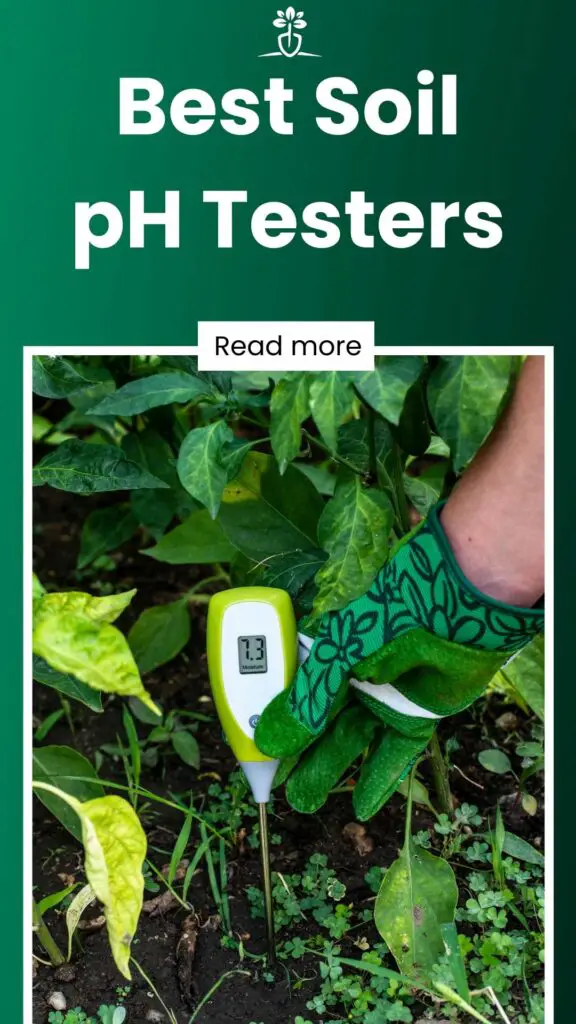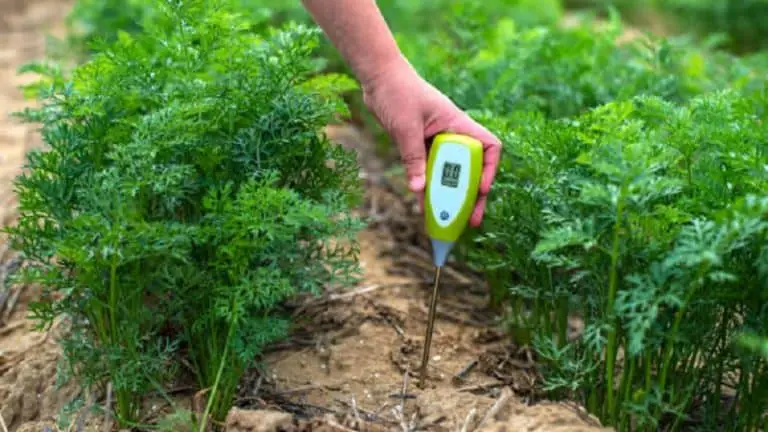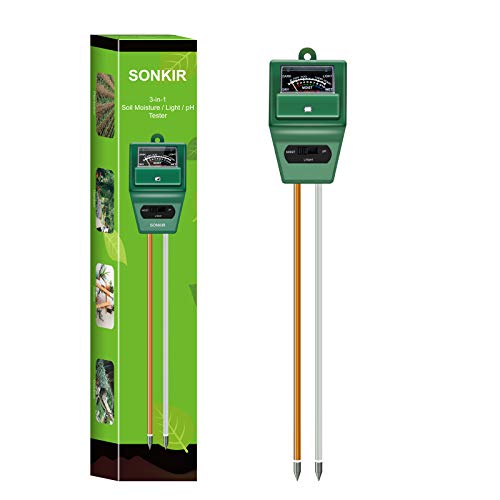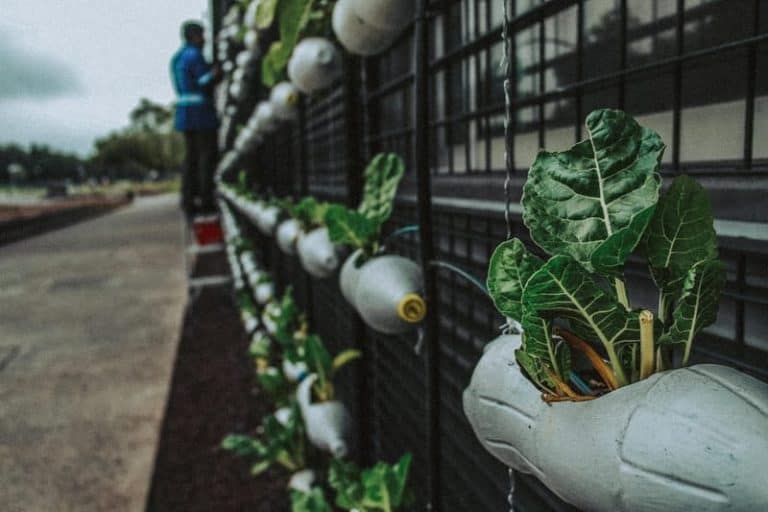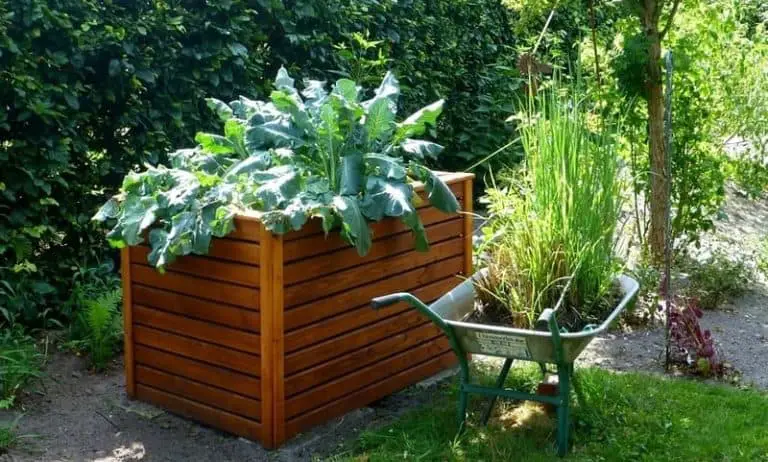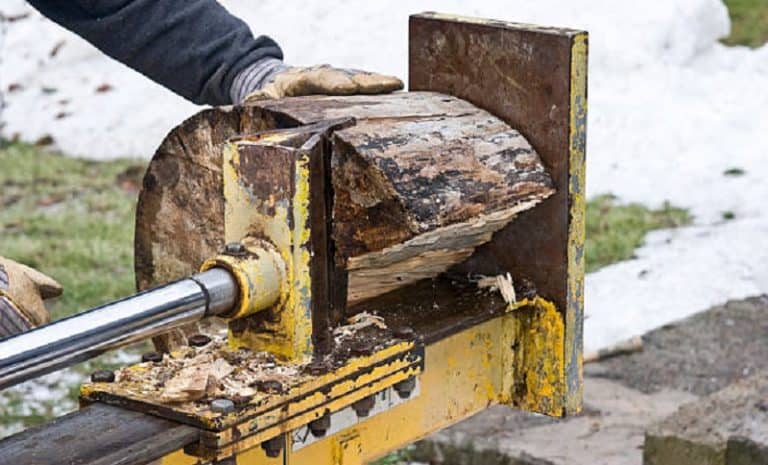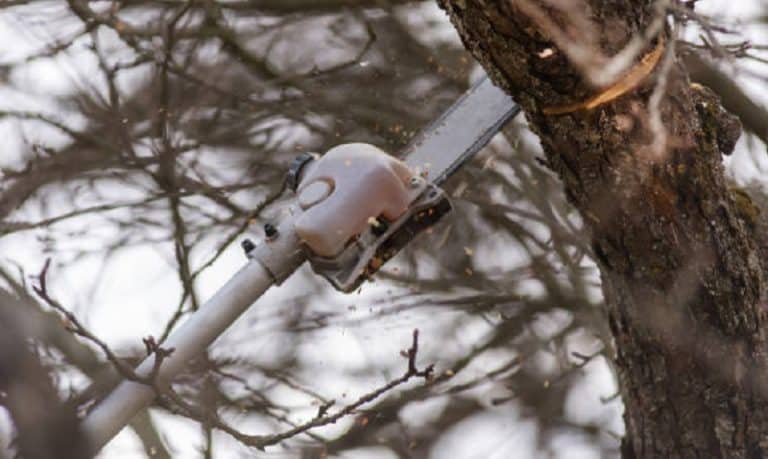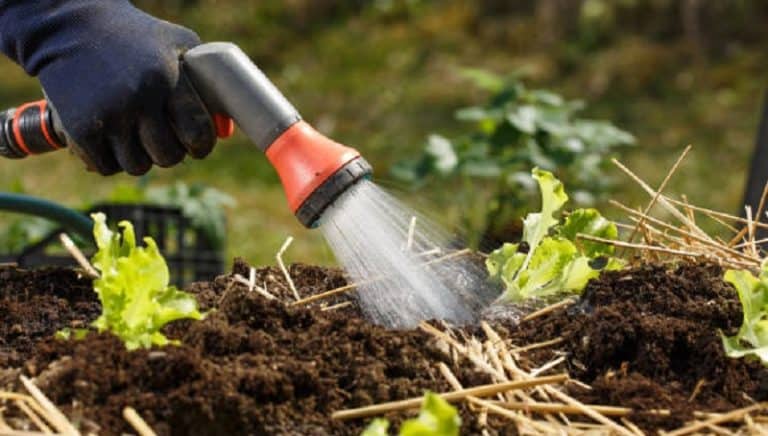Best Soil pH Testers
Soil pH tools show if your soil is sweet or sour with pH numbers. They quickly offer trusty info, making your garden thrive. Many plants enjoy a pH near 6.5, yet some may prefer a different taste.
We’ve rounded up the best soil pH testers, as well as a buying guide to help you choose the best one for your plants. Let’s get you that garden you’ve always wanted.
Our Top Picks at a Glance:
Contents
Best Soil pH Meters
1. Sonkir Soil pH Meter
Key Features
- It’s a 3-in-1 garden tool (pH, moisture, and sunlight tester).
- The manufacturer offers a 12-month warranty and money-back guarantee in case you receive a defective product.
- It offers scientific data monitoring.
- Weight – 3.2 ounces.
- It doesn’t require a battery.
This garden tool not only allows you to test the pH, but it also allows you to check the moisture and sunlight. It’s also an easy to use tool that guides you in making the necessary adjustments for proper plant growth.
Why we like it
- It has two needle detectors (probes) that speed up the testing process, as well as improve the accuracy of the readings.
- Its sheer weight makes it easy to carry around and use it outdoors.
- It enables you to test pH levels from 3.5 to 8.
- The 12-month money-back guarantee assures of a quality product and support from the manufacturer.
What we don’t like
- It takes longer to give the readings. If you’re not patient, you may record the wrong readings.
Our Verdict
We recommend this soil pH tester, for it’s easy to use, affordable, and accurate. There are complaints about getting the wrong readings, but all you need to do is give it enough time. Let the soil pH tester stay in the soil for about 10 minutes. By doing this, you’ll always record accurate readings.
2. Atree Soil pH Meter 3-in-1
Key Features
- It’s a 3-in-1 garden tool. (Moisture, pH and sunlight tester).
- It doesn’t require a battery.
- This soil pH tester has two probes for enhanced accuracy and quick turnaround time.
This soil pH tester ensures a healthy garden; thanks to it’s easy to use design and scientific accuracy. You also don’t need to use a battery, eliminating the hassle of power shortages and unreliable batteries.
Why we like it
- It’s easy to use, all you need to do is insert 2/3 of the probes into the soil, and give it enough time (about five minutes).
- The monitor gives a user-friendly interface.
- You don’t need any batteries. You’ll always get consistent accuracy without power shortage interferences.
What we don’t like
- The probes are quite fragile. They tend to break when forced into hard soil.
- The sunlight tester is not straightforward. If you don’t adjust it correctly, you could get the wrong readings.
Our Verdict
We recommend this tool for plant mums and other enthusiasts who love to monitor their plants daily. The probes go deep, close to the roots, giving scientific accuracy. It also has a compact size, and an easy to use interface.
3. Kelway Soil pH Meter
Key Features
- This pH meter allows you to test pH levels between 3.5 and 8.
- It is battery-free.
- It’s a 2-in-1 garden tool. (Soil pH tester and Moisture meter).
- It allows you to take multiple readings at a time.
- It comes with a conditioning film.
The Kelway soil pH tester is a premium garden tool, but it’s worth your time and money. It offers the accuracy that matches that of soil labs.
Why we like it
- It measures a wide range of pH levels. (3.5 to 8).
- It also measures a wide range of moisture values (o to 100%).
- It’s scientifically accurate. DIYers and professionals can use it.
- It’s possible to take readings over a wide area.
What we don’t like
- It’s a bit overwhelming for new users.
Our Verdict
This soil pH tester is quite costly when compared to other models that we’ve reviewed. But it’s high levels of accuracy, and excellent performance makes it worth every cent. We recommend it to professionals or homeowners who would like to test the pH over a large farm.
Best Soil pH Testers Buying Guide
Getting the best soil pH tester for your plants makes all the difference in monitoring your plants. They help you make the necessary changes towards a healthy garden. Before diving into how you can choose the best one, let’s review why you need to test your soil’s pH.
Reasons Why You Should Test the Ph of Your Soil
Soil pH testing is necessary because it helps you determine the nutrient’s availability in the ground. If you soil specific nutrients, your plants lack vigor, and they’re also prone to insects and disease. Lack of nutrients could lead to drought. The first instinct of a farmer is usually to use fertilizers and other methods of improving the soil. Before embarking on these measures, we believe that you should test and come up with accurate readings. The results will give insights on the available nutrients and which fertilizers you need to use to compensate for the lacking nutrients. You may even need to use a mulch.
Factors to consider when choosing a Soil pH tester
- Accuracy – We all agree that this is the most crucial aspect to check in a soil pH meter. For a color-comparator tool, you need to ensure you follow the instructions and mix the correct amounts for each tool kit. If done correctly, you’ll get a color that’s within the scale. If you’re using a probe tester, test multiple times and calculate an average of the readings. If it’s the first time you’re using the tester, you can take samples to the soil lab and compare the results. Once you’re confident that it’s accurate, you can always test the pH on your own.
- Price – The cost of a soil ph tester doesn’t necessarily determine its quality. However, you need to get the best value for your money. When on a tight budget, go for a tester that offers the basic functionalities without compromising quality. If you need a premium tool for professional or large-scale use, ensure it’s at a reasonable price.
- Ease of use – As much as we did chemistry in high school, we may not always have some of the chemistry concepts at our fingertips. Make sure you get a tester that’s straight forward. Probes only need you to insert them into the soil and wait for the reading. Color comparators should come with a well-detailed guide. The monitor should also be easy to read, even for a beginner.
- Testing range – Most testers, especially the probe testers, test for pH values from 3 to 8. Most plants fall within this range, so this may not be much of a problem. However, if you have younger plants, you may need one that tests for the whole pH spectrum. A basic color-comparator tester can help you achieve this.
- Power source – All of the testers we’ve reviewed today do not require a power source. As a result, they are easier to carry around, and they’re hassle-free. However, some brands require a battery. Make sure that the cells are readily available in the market. Most of the soil pH testers use the AAA or cr2 batteries. A power source doesn’t guarantee the quality, though.
- Depth of the probe – You should test the soil pH at the roots of a plant. So, the best probe depth is one that gets to, or close to, the roots. Longer probes are the best in such a case. However, when you have to collect soil samples, the length of the probe doesn’t matter.
- The manufacturer – The manufacturer of a product matters too. You need to understand the applications they had in mind when designing the tester. Some manufacturers design testers for lawn maintenance, while others design products for managing large farms, such as plantations.
Frequently Asked Questions (FAQs)
Are Soil pH Testers Accurate?
The probe soil testers and the color-comparators are accurate. However, you need to use them as instructed. You can also take samples to the soil lab and compare the results to determine if that particular tester is accurate.
What Should the pH of my Soil be?
The pH values range from 0 to 14. 7 stands for neutral. Any number below 7 means the soil is acidic, while the figures above 7 indicate the soil is alkaline. Most plants can survive in soils with pH levels that range from 5.5 to 7. But some plants require certain levels of pH to thrive.
Final Thoughts
We believe that the fact that you would like to test soil pH on your own, you may not be looking for a fancy, expensive, and advanced soil pH tester. That’s why we believe that Sonkir Soil pH Meter MS02 3-in1 Soil Moisture, light, pH Tester may suit your needs.
It’s very accurate, thanks to the twin-probe system. The probes are long, allowing you to reach deep and get accurate readings. It’s easy to use, and the readings are quite straight forward. Besides, we think that it’s the only tester from our list that has a 12-month money-back guarantee and technical support from the manufacturer.
